The Link Between Social Connection and Brain Health
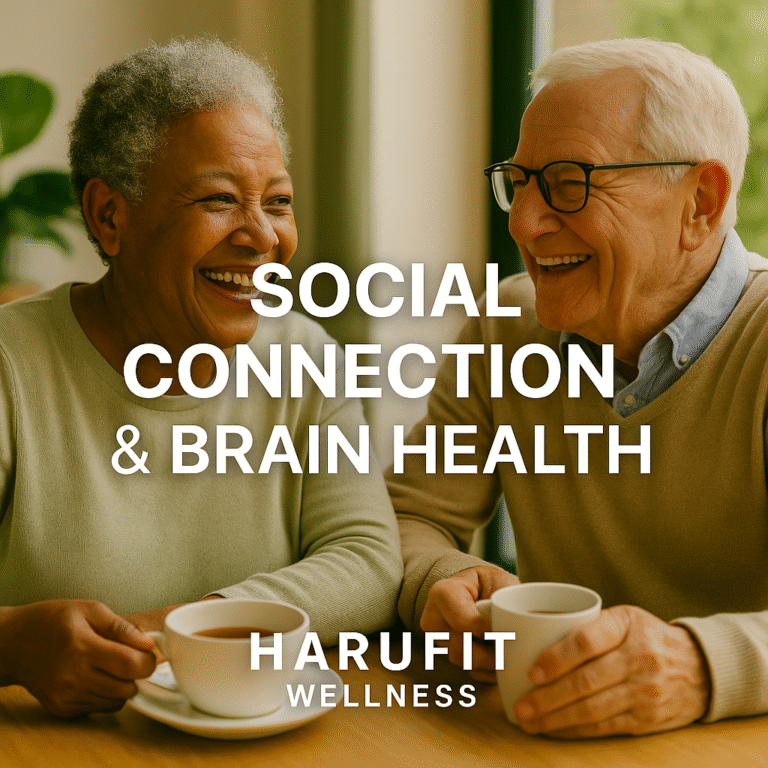
Social connection nurtures brain health and emotional balance.
As an Amazon Associate I earn from qualifying purchases.
This post may contain affiliate links which means I may receive a commission for purchases made through links.
What keeps your brain sharp as you age? Most people think diet and exercise. But there’s something equally powerful hiding in plain sight: your relationships.
Strong social ties don’t just make life better—they actively protect your mind from decline.
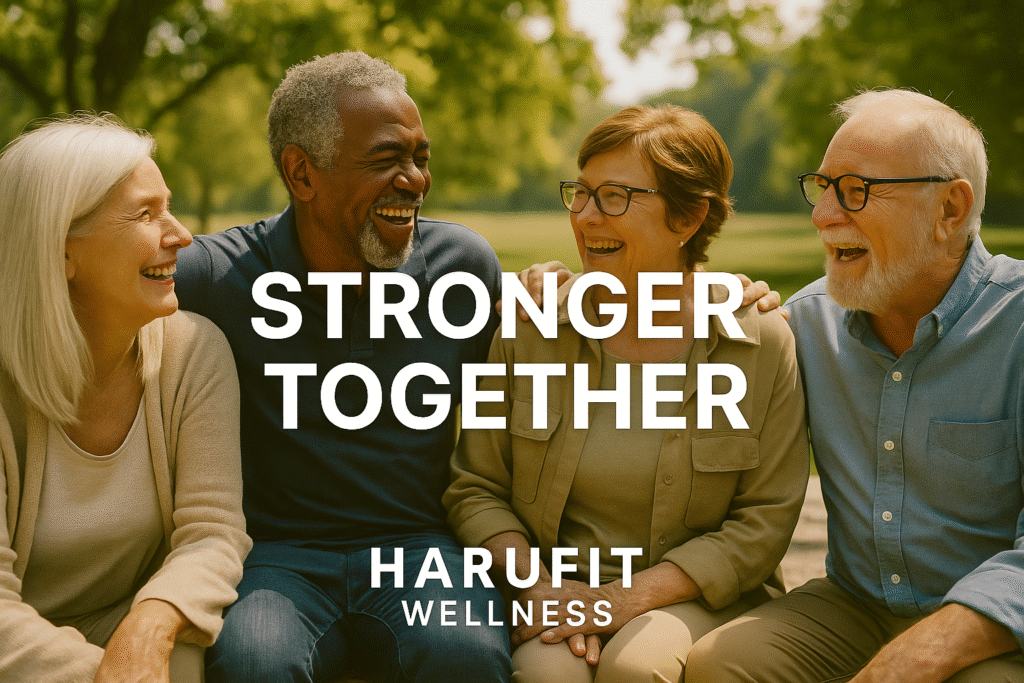
Why Your Brain Craves Connection
Your brain treats social interaction like a high-intensity workout. Every conversation activates multiple regions simultaneously:
- Memory centers recall shared experiences
- Language areas process complex communication
- Emotional networks interpret facial expressions and tone
This mental multi-tasking particularly strengthens the hippocampus and prefrontal cortex—two areas crucial for memory and decision-making.
The Harvard Study of Adult Development, tracking participants for over 80 years, shows that “good relationships don’t just protect our bodies; they protect our brains.” People with strong social networks maintain sharper cognitive function well into their 80s and 90s.
Recent research confirms that social isolation increases dementia risk by up to 50%, while the 2020 Lancet Commission estimates that addressing social isolation could prevent 4% of dementia cases worldwide.
The Hidden Dangers of Isolation
Loneliness physically changes your brain structure. Here’s what researchers have discovered:
Chronic Stress Response 🧠
Isolated individuals show elevated cortisol levels that literally shrink the hippocampus over time, making new memory formation increasingly difficult.
Brain Inflammation
Social isolation triggers inflammatory responses similar to physical injury. These inflammatory markers cross into brain tissue, damaging neurons.
Network Deterioration
Without regular stimulation, neural connections weaken and disappear—like unused muscles atrophying.
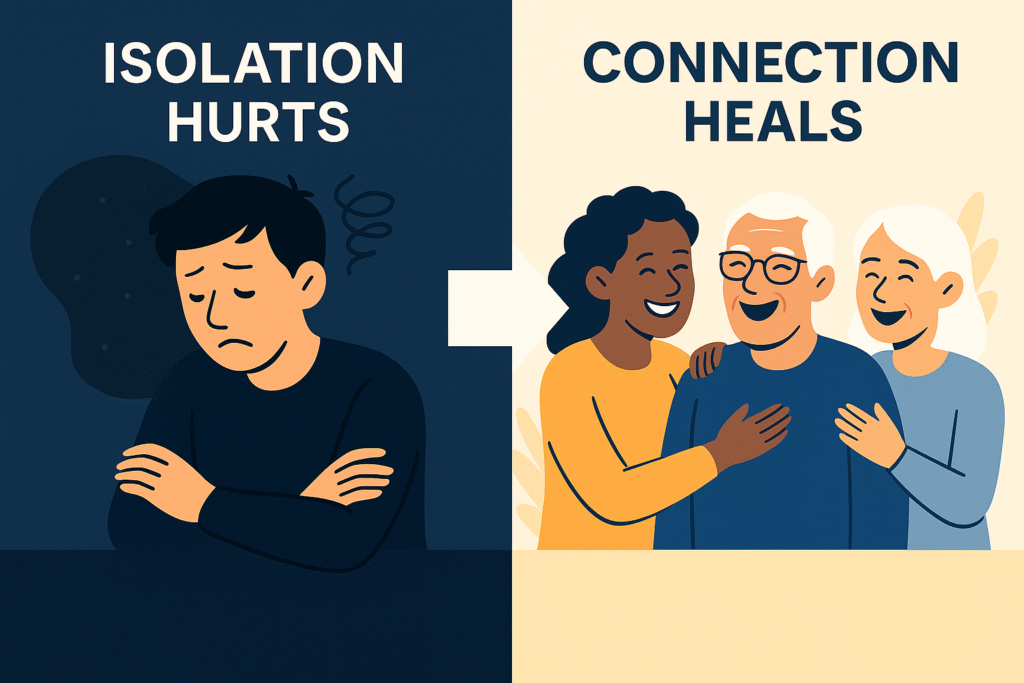
How Connection Builds Cognitive Armor
Regular social engagement creates powerful protective effects:
Cognitive Reserve Building ✅
Social connections contribute to cognitive reserve—your brain’s ability to cope with damage by using alternative neural pathways. More reserve means better protection against age-related decline.
Stress Buffer
Meaningful relationships reduce stress hormones and provide emotional support during challenging times. Lower stress equals healthier brain aging.
Mental Stimulation
Conversations force rapid-fire thinking: interpreting emotions, following complex topics, forming responses. This constant exercise strengthens cognitive abilities.
Simple Ways to Strengthen Your Social Brain
Building meaningful connections doesn’t require major life changes. Small, consistent efforts create significant protection:
Join Community Activities
Local clubs, volunteer organizations, or fitness groups provide regular interaction opportunities. Research shows group activities can help boost brain health and cognitive reserve.
Embrace Technology Wisely
Video calls and online communities can maintain relationships across distances. While face-to-face remains ideal, meaningful digital interaction provides substantial cognitive benefits.
Create Daily Touch Points
Brief daily interactions—greeting neighbors, chatting with store clerks, calling friends—accumulate into powerful brain protection.
Try Intergenerational Activities
Programs connecting older adults with younger generations show promising results for cognitive health. Teaching others strengthens executive function and provides mental stimulation benefits for aging brains.
The Synergy Factor
Social connection works best alongside other brain-healthy habits:
Movement + Socializing
Group fitness, walking clubs, or dance classes combine physical exercise with social stimulation for enhanced benefits.
Shared Meals
Cooking and eating with others makes healthy nutrition more enjoyable and sustainable.
Consider supporting your social brain health with targeted supplements:
Life Extension Neuro-Mag Magnesium L-Threonate –[affiliate links] specifically designed to cross the blood-brain barrier and support memory formation.
Nordic Naturals Ultimate Omega –[affiliate links] provides EPA and DHA in research-backed ratios for brain health.
Real-World Success
Maria, 74, noticed her memory declining after her husband’s passing. Instead of withdrawing, she joined a community gardening group and began volunteering at a local school.
Six months later, her daughter reported noticeable improvements in Maria’s conversation quality and problem-solving abilities. “Staying connected keeps my mind active,” Maria explains.
Your Next Steps
The science is clear: nurturing relationships today protects your cognitive future. This doesn’t mean forcing uncomfortable social situations—quality matters more than quantity.
Start small:
- Reach out to one person this week
- Join one new group this month
- Schedule regular check-ins with friends or family
Beyond social connections, developing personal reflection habits like journaling for mental clarity can further enhance your cognitive wellness journey.
The best time to start building these protective relationships is now. As Harvard researchers note, “aging is a continuous process” that begins in our 30s.
Your brain will thank you for making connection a priority today.
Which social activity could you try this week to boost your brain health? Share your thoughts below.

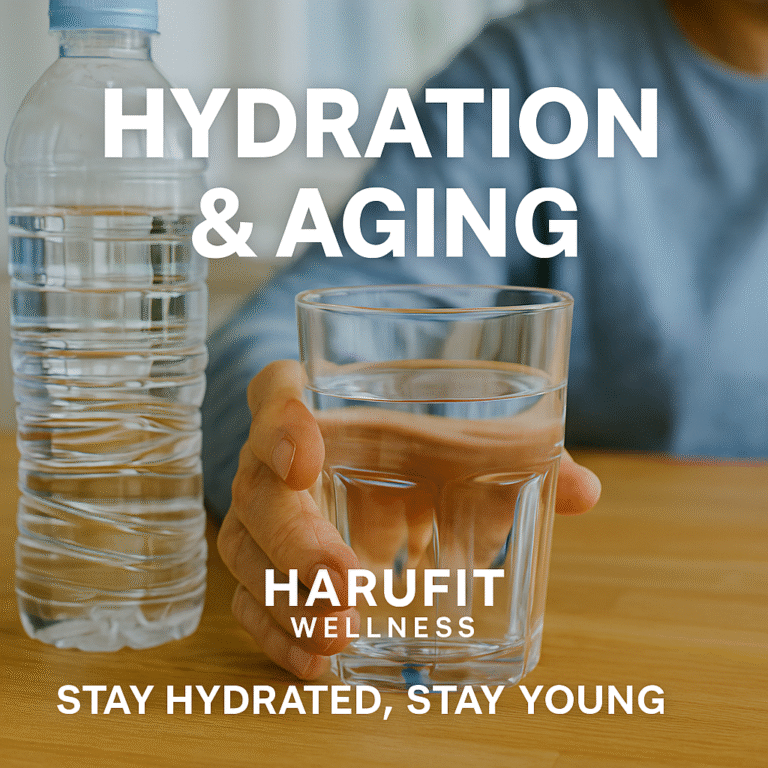
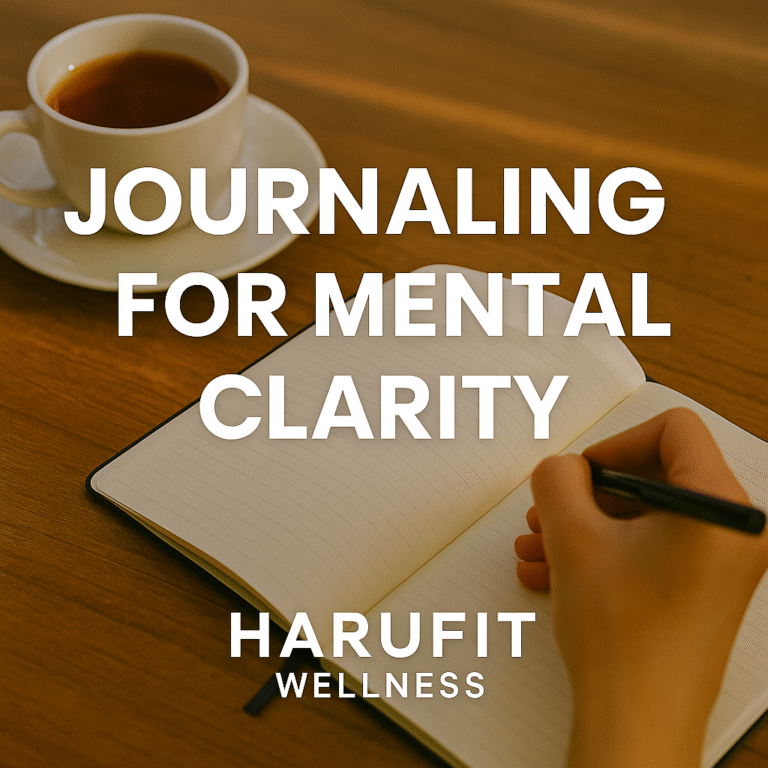
Comments